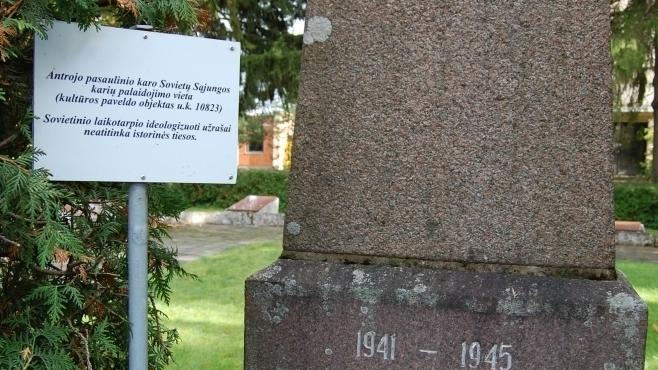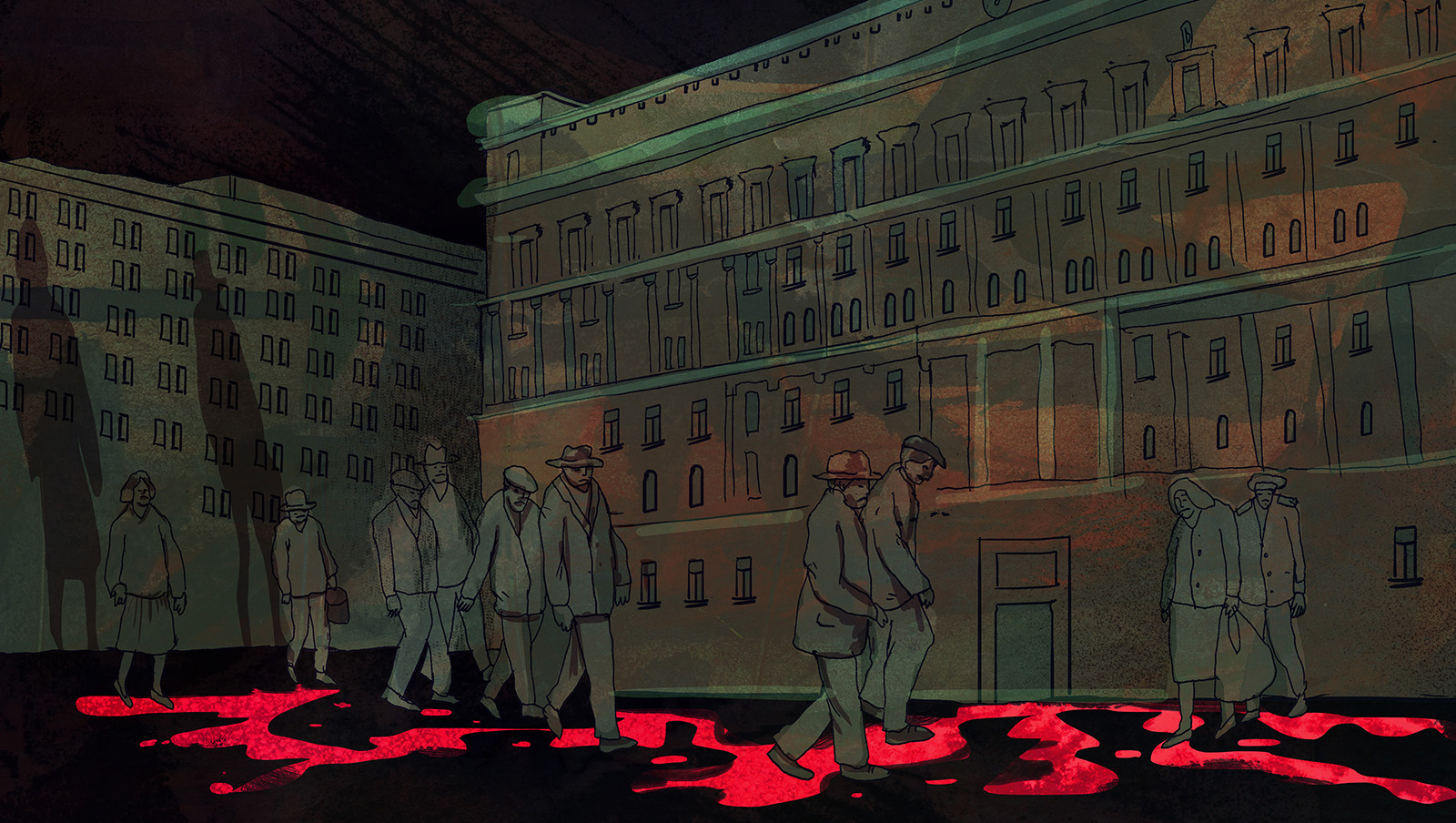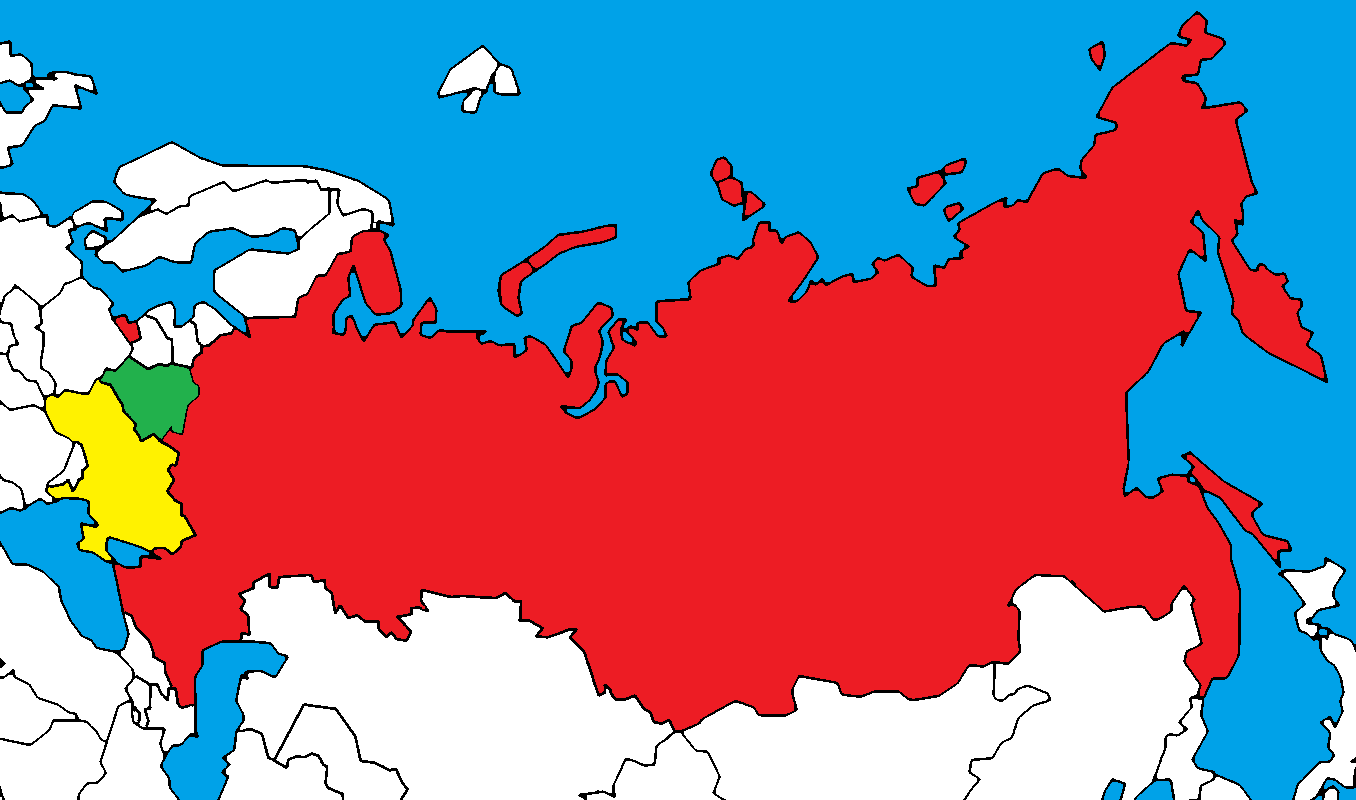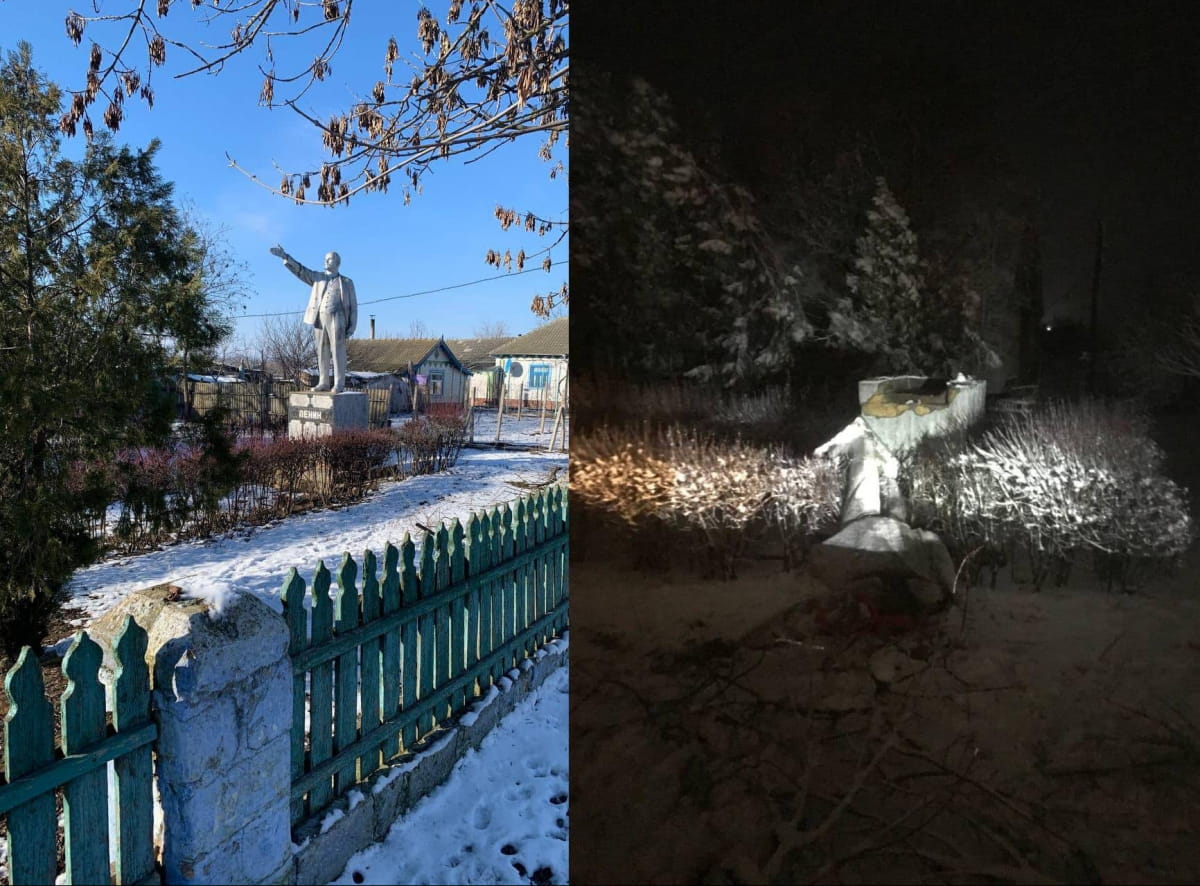Across the former Soviet empire, non-Russians have been taking down the Soviet-era statues that Moscow had imposed on them. The Baltic countries did so in 1991. Ukraine recently eliminated all Lenin statues, and now Poland is being sharply criticized by the Russian government for eliminating monuments to the Red Army.
But now a district in Lithuania has come up with a clever strategy, one that moves between the Scylla of leaving these monuments and their messages in place and the Charybdis of taking them down and being attacked by Moscow or by others who decry the destruction of something that they view as part of the historical record.
At a cemetery in a district in northern Lithuania, local officials have not taken down the monuments Moscow erected near the graves of Red Army soldiers but rather put up new signs indicating that “the ideological inscriptions of the Soviet period do not correspond to historical truth.”
Lieuvos zinios reports that this decision of the local authorities was not coordinated with Vilnius. Instead, Dalius Mikelenis, an official of the Birzai municipality, said that the town took the decision on its own because “we feel that we are making a contribution to the promotion f historical truth and consider that we have done so.”
He said that the reason that Vilnius had turned them down was because Lithuania and the Russian Federation have certain agreements about the maintenance of military cemeteries, and he suggested that it is even possible the Lithuanian government will take action against the municipality for this step.
But the municipality’s idea has much to recommend it in the case of other Soviet statues that don’t fall under bilateral agreements. And, in fact, it is not entirely new: just before Estonia moved the Soviet “Bronze Soldier” from downtown Tallinn to a military cemetery in 2007, some in that country proposed a similar strategy.
Instead of tearing down or moving the statue, they suggested erecting new statues around the Soviet one, memorials to all those Estonians and others who were victims of the Red Army and Soviet occupation, including those killed in Estonia or deported to Siberia. Such a step, these people felt, would do more to promote an understanding of the past than any other move.
Perhaps others will pick up on these Baltic initiatives now and in the future.
Related:
- Lithuania’s President: UN must rise up against Russia’s abuse or face irrelevance
- ‘Molotov is alive and looking for a new Ribbentrop,’ Lithuanian foreign minister says
- Only Ukraine’s success can influence positive development of Russia – Lithuania’s ex-Prime Minister
- Can America look to Ukraine for guidance on their growing monument problem?
- Museum of Soviet monumental propaganda to open in Kyiv in fall of 2017
- Activists in Kyiv trying to demolish monument to Cheka secret police





